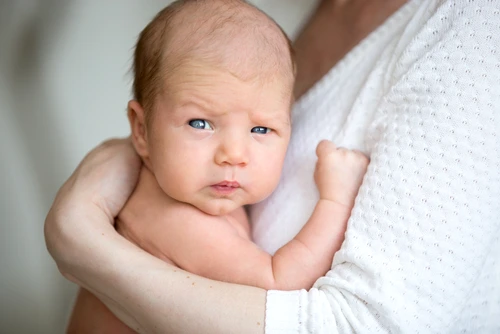
Have you ever stood up for hours, walking, singing and rocking a contented baby, and when you sit down, rest, he starts crying? Not? You belong to the category of the chosen few. The rest try to cope with a strange reaction from small children, disarming for parents.
Why do babies start crying as soon as they feel you want to sit down? And sometimes the crying is so strong that the tiredness of the body disappears like a miracle, and all you want is to stand up again? Know that you are not alone and the baby is not to blame, but evolution. What it is?
It’s a situation that many parents know all too well: even if a baby seems completely calm, there are high risks that he will start to fuss and often cry the moment you sink into the nearest armchair.
Sense of humor or evolution?
Fatherly.com explains that this rather irritating reaction could have evolutionary origins. You just have to imagine that you are crossing through the jungle and you are being chased by a predator thirsty for fresh blood. The chances of survival are greater if the child held close to the chest does not slow you down, but pushes you to keep going, shaking and crying.
Over millions of years, the human species and more could have evolved to automatically remain still and quiet when the parents are in motion, only to return to their original state of restlessness as soon as that motion ceases. it stops.
In a study published in the journal Current Biology in 2013, researchers tracked the heart rate of 12 infants in three different situations: when they were being carried by their mothers, while the mothers were sitting next to them, and when the children were sitting alone in their cribs. . In addition to their apparent calmness when carried, the babies’ heart rates were significantly lower.
These data suggest that the infants were more relaxed while walking than while sitting, not only behaviorally, but also physiologically, the researchers wrote. The native physiological response to being carried is not specific to human babies. The young of other mammals, including cats, rats and lions, curl up on their mothers’ bodies and let themselves be carried around. In the same study, experts observed that baby mice “maintained an immobile and compact posture” when their mothers grabbed them by the back of the head.
The research is the first to reveal striking similarities in the calmness induced by wearing human infants and mouse pups to reduce mobility, vocalize and regulate heart rate.
In other words, we can believe that babies help us survive or, simply, that they have a strange sense of humor.
@shutterstock






































